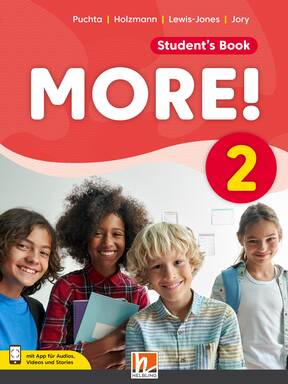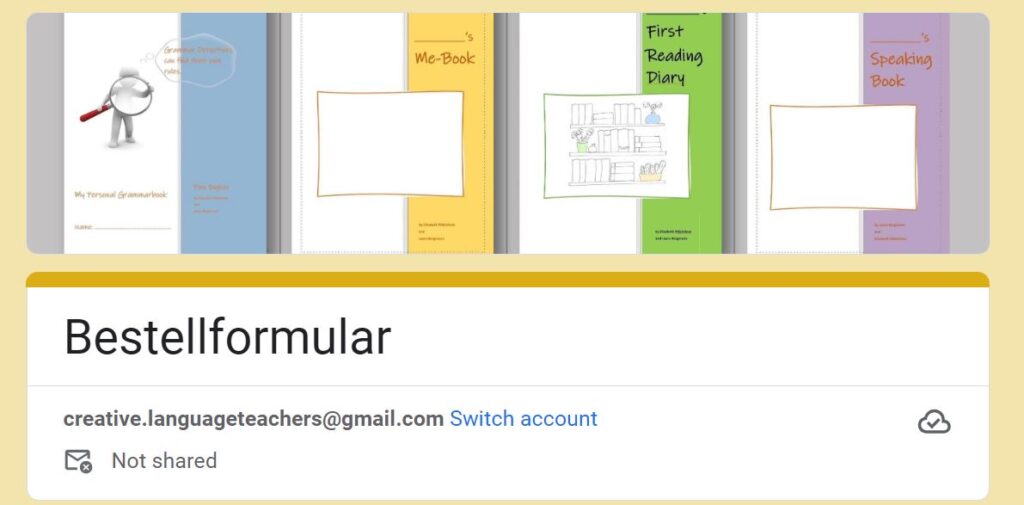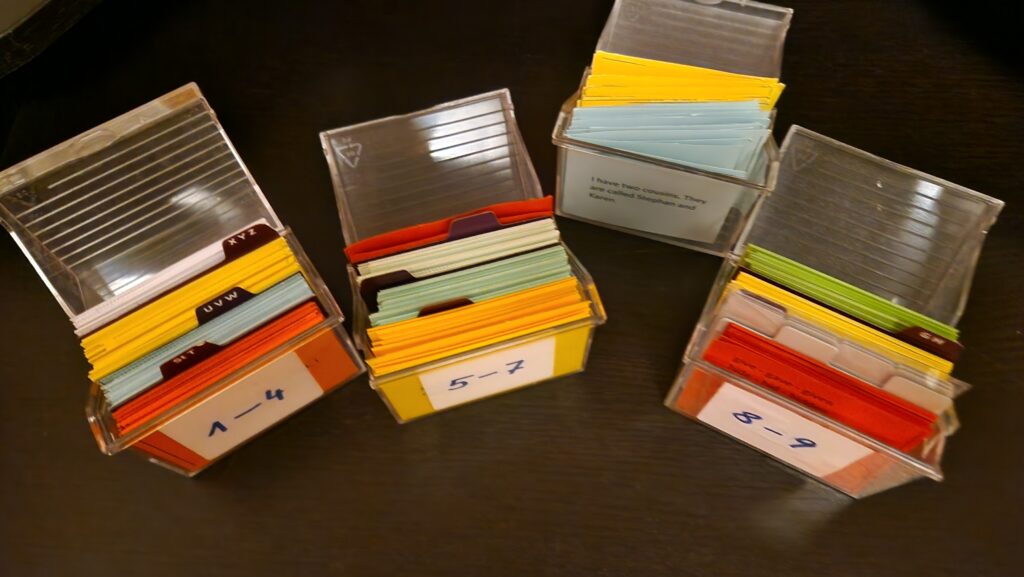
On this page you will find my collections of printable vocabulary cards. I do not use any textbook, but follow the topics that arise naturally in our school setting. We start with: Who am I — Who are my friends, What are our hobbies, likes and dislikes, Our Families, Where do we live, etc.
In order to be able to talk and write about these topics the students also need some grammatical forms. In this MEANING into FORM approach the topics give rise to the necessary forms that we need to study. The vocabulary cards for each topic also include the necessary grammar.
For example:
- To talk about their friends and family members, the students need to use the 3rd person s. They also need personal and possessive pronouns.
- Before the Christmas holidays my students want to talk about their holiday plans. We therefore practice basic sentences with the “going to” form.
- After the holidays we use the same sentences in the past tense.
- To describe the atmosphere in a spooky story, they need to use the past progressive form (an owl was hooting, it was raining heavily)…
In addition to the vocabulary cards my students use our Grammar Detectives book to work on the respective grammar topics and they write a final text on each topic in their Me-book. This text shows whether the students have mastered the vocabulary and grammar of each unit. They also record a speaking task for each topic. You can find these tasks in the Speaking book.
As explained on my Vocabulary Activities page, I create these cards in Excel. My Excel files have two pages, one for teacher input in two columns and one for printing the cards. This makes creating new sets of vocabulary cards for students very quick and easy. Excel automatically places the English and German sentences in the right places for double-sided printing.
On the English side of the sheets you can see the grid lines for easy cutting. I use lightweight cardboard to print the cards for my students. Each set has a new color, so the students can easily see their progress as the cards of one color are moving through their vocabulary boxes.
When I create sets of vocabulary cards, I keep in mind the final writing and speaking tasks for each topic, and I create all kinds of short sentences that might be useful for those topics. I also include some sentences where my students tend to make mistakes, and I include the grammatical forms that students will need to speak and write about the topic in focus.
If you want to use any of the sentences I share here, always check to see if the sentences are relevant to your students. Change them on the input page of the Excel file and save the file for future use.
Vocabulary sets for year 1
| Module 0: First Steps | |
| Module 1: That’s Me | |
| Module 2: My Friends | 3rd person s, personal pronouns, posssessive pronouns, possessive s |
| Module 3: My Family | |
| Module 4: Our Daily Routines | present simple |
| Module 5: My Home | describing where things are |
| Module 6: Food |
Vocabulary sets for year 2
| Module 7: Stories in the Past | simple past |
| Module 7: irregular verbs | |
| Module 8: Animals | comparing |
| Module 9: Our Future | predicting the future (will) |
| Module 10: Exciting experiences: Have you ever…? | talking about general experiences: present perfect tense |
| Module 11: Finding the way in town | giving directions |
Vocabulary sets for year 3 and 4
| Back from the holidays | |
| Discussion Competition Phrases | |
| Agreeing and Disagreeing | |
| Describing People (character) | adjectives |
| Spooky Stories | Creating atmosphere, past simple and past progressive tense |
| Reporting Fake News | Reporting |
| Rules around us | Modal Verbs |
| Reading Project: I Survived series | |
| Inventions | Passive Voice |
| Magazine Writing | |
| Reading Project: Who was series | |
| Reading Project: 39 Clues | past perfect tense |

Vocabulary cards based on the textbook MORE
A colleague of mine who is using my vocabulary methods with the MORE textbook has offered to share his vocabulary sets with interested teachers on my website. If you use the MORE books with your students, these cards will certainly help them produce better writing and make fewer mistakes than students who study vocabulary as single words.
Personally, I wouldn’t want to use this textbook because the topics and content are too far removed from the daily needs and interests of my students, but if you are using the MORE book with your students, Albert Wolfmayr’s vocabulary cards will be a great help.
Practical tip: In Albert Wolfmayr’s cards, some words and names are printed in bold. You may want to replace these to make the phrases more appropriate for your setting.
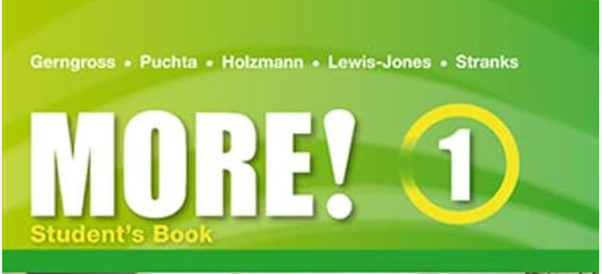 |
| More 1: unit 1 (no cards available. Working with vocab cards is introduced in unit 2) |
| More 1: unit 2: At the zoo |
| More 1: unit 3: Pirates |
| More 1: unit 4: Emotions |
| More 1: unit 5: This is our band |
| More 1: unit 6: The world’s best detective |
| More 1: unit 7: I love noodles |
| More 1: unit 8: Clothes |
| … more coming soon |
Best
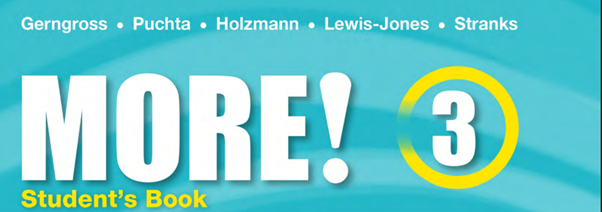 |
| More 3: unit 1: Music |
| More 3: unit 2: Would you believe it |
| More 3: unit 3: What an Adventure |
| More 3: unit 4: Wild and Dangerous |
| More 3: unit 5: Superstitions |

